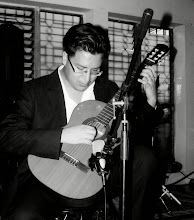Thoughts on the making of Paul Simon's "Graceland"
in the 80's (pro-apartheid) African Society
Essay for the University of Pennsylvania
The decade of 1980's was quite significant
and a transitional time in mankind history, and usually when big changes
happen, they usually start inside a cultural background. Since culture
is something everyone grasps and somehow understand at different
degrees, artists use their craft to raise awareness of what's going on
in society using symbols or just telling their audiences directly how
things are going at a particular time. At the end of the day, a true
artist wants to leave an impression in the world, so deep it could
influence and inspire fellow artists as well as their audiences to do
the same, making their work socially (and sometimes spiritual) valuable.
This was the case of Paul Simon's Graceland, an album made by an artist
who was recovering from a very poor reception of his previous album
(despite of its musical quality) and who was looking for inspiration,
something he found in a casette containing some african music he liked.
Unaware of what he was going to achieve, he decided to go to South
Africa and get in touch with talented (but relatively unknown) musicians
to make a record in which he could join both his rock background
together with his new fond african-music-driven inspiration.
Now, these were difficult times in South
Africa, considering they were living under social turmoil for almost 40
years because of the Apartheid policy. Few people, like Steve Biko, have
decided to go against the Apartheid movement, because of the fear of
being tortured and murdered, like what happened to Biko. Some countries,
in order to force the removal of this policy decided to create a sort
of "cultural-embargo" not allowing their musicians or athletes go to
South Africa as long as Apartheid was the dominant policy. But in my
opinion, instead of solving the problem, these actions made it worse. I
think it was necessary that someone like Paul Simon, whose music had
(and still has) a large impact in the world, did this sort of experiment
as a counter-action, and in a rebel manner, just like good rock and
roll is. Maybe he did it consciously, maybe he did not. But, doing so he
somehow helped raise awareness of the South African conflict, and
helped South African music collectives like Ladysmith Black Mambazo get
world-wide recognition.
For a musician (or anyone) living under
these kind of social conditions in South Africa, this particular event
was crucial, because it was one of the many catalysts for the breakdown
of the Apartheid policy, therefore it gave a lot of freedom to everyone
to work with whoever they wanted, despite their race or ethnicity. In my
opinion, Paul Simon's "Graceland" is a glimpse of hope, the proof that
the power of music knows no boundaries, and it could bring social
changes when made not for a financial or fashionable reason, but for the
sake of making this world a better, more liveable place.


No comments:
Post a Comment